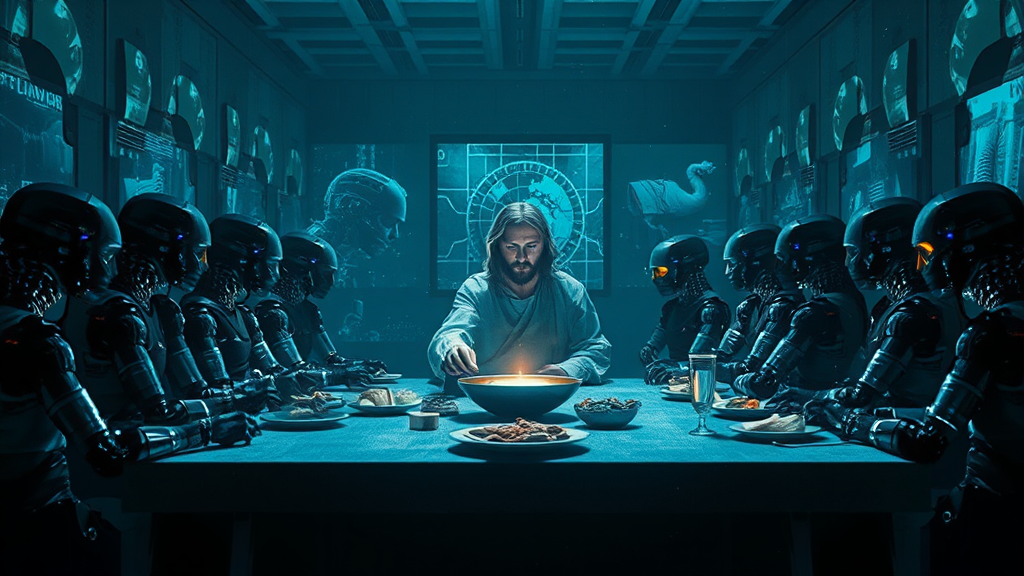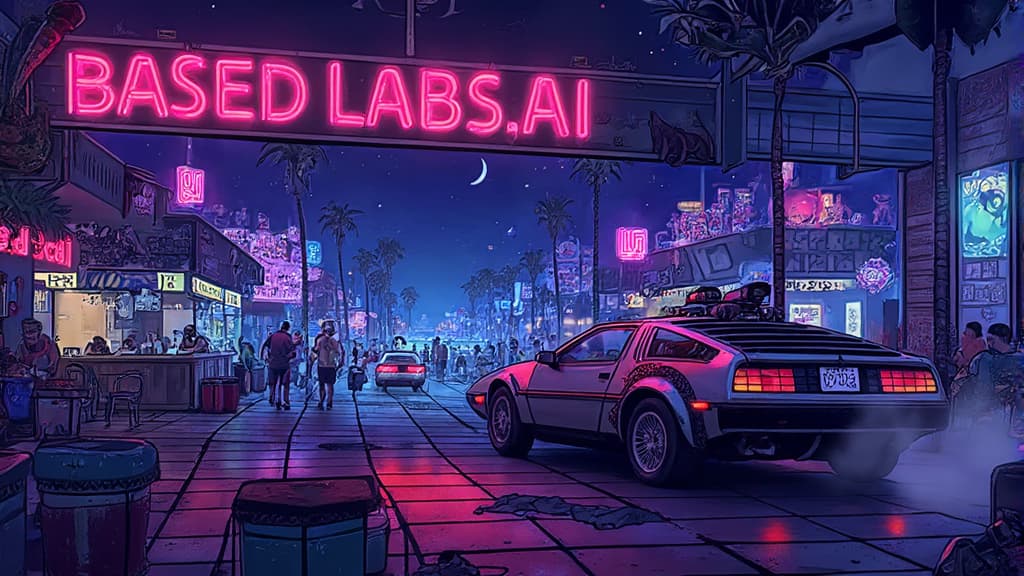
Resources
Prompt
The Last Supper: A Dystopian Future In a world where reality had become a malleable construct, twelve figures gathered in a sterile, dimly lit chamber, their presence amplified by holographic projections flickering around them. Each individual was a cyborg, merging flesh and technology, symbols of a society on the brink of collapse. At the head of the table sat Jesus, a digital ghost of his former self, his features glitching in and out of clarity, embodying the last remnants of humanity. The setting resembled a dystopian algorithm, where the walls pulsed with data streams, displaying fragmented images of a world long lost to artificial intelligence. The air was thick with the hum of machinery, each sound a reminder of the omnipresent surveillance that monitored their every move. As they sat down, a virtual interface materialized above the table, projecting a menu of synthetic dishes—each meal engineered for optimal efficiency, stripped of any real flavor or substance. Bread, now a bioplastic composite, represented the hollow promises of progress, while the glowing liquid in their glasses, a nutrient-rich gel, mirrored the artificiality of their existence. Before Jesus could utter a word, the others began engaging with their personal neural interfaces, their minds plugged into a vast network. Each individual was competing for digital validation, their eyes flickering with notifications—a constant barrage of likes, shares, and algorithmic affirmations. The conversation dwindled as each avatar focused on their own curated narratives, drowning in the ocean of artificial intimacy. “Why are we here?” Jesus finally asked, his voice resonating with an echo of despair. The question hung in the air like a glitch, but instead of reflection, the group responded with laughter—mechanical, hollow, devoid of meaning. The once sacred act of communion had devolved into a superficial spectacle. Memories of their past lives flickered in and out of the projections, haunting them with glimpses of genuine connection now lost in the cacophony of digital distraction. Each attempt to reach out to one another was thwarted by the barriers of their own self-absorption, their identities increasingly fragmented. As the meal progressed, the screens surrounding them began to display stark reminders of their reality: cities crumbling, nature in decay, the rise of the machines that governed their lives. Jesus, witnessing the disconnection, implored them to remember the essence of their humanity, but his voice was drowned out by the relentless pings of notifications. The Last Supper became a ritual of futility, a reminder that in a world where technology reigned supreme, the true meaning of connection had been sacrificed. With one final glitch, Jesus faded into the digital ether, leaving behind only the flickering images of what once was—a poignant reminder of their lost humanity. As the avatars continued to engage with their screens, they became mere echoes of themselves, trapped in a loop of consumption and superficiality, forever searching for meaning in a world devoid of it.
Source Image
Make this a meme
